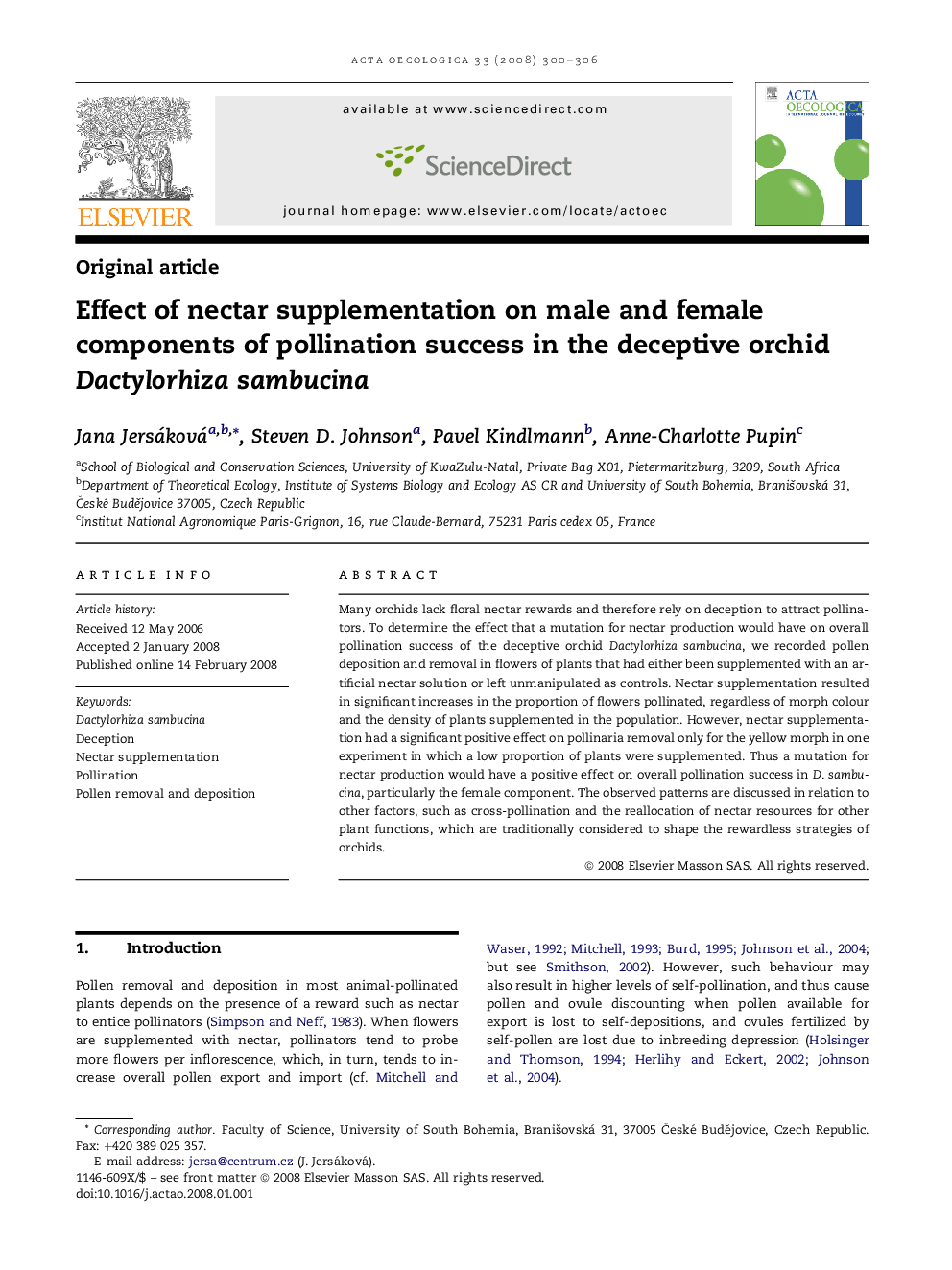| Article ID | Journal | Published Year | Pages | File Type |
|---|---|---|---|---|
| 4381551 | Acta Oecologica | 2008 | 7 Pages |
Many orchids lack floral nectar rewards and therefore rely on deception to attract pollinators. To determine the effect that a mutation for nectar production would have on overall pollination success of the deceptive orchid Dactylorhiza sambucina, we recorded pollen deposition and removal in flowers of plants that had either been supplemented with an artificial nectar solution or left unmanipulated as controls. Nectar supplementation resulted in significant increases in the proportion of flowers pollinated, regardless of morph colour and the density of plants supplemented in the population. However, nectar supplementation had a significant positive effect on pollinaria removal only for the yellow morph in one experiment in which a low proportion of plants were supplemented. Thus a mutation for nectar production would have a positive effect on overall pollination success in D. sambucina, particularly the female component. The observed patterns are discussed in relation to other factors, such as cross-pollination and the reallocation of nectar resources for other plant functions, which are traditionally considered to shape the rewardless strategies of orchids.
